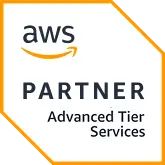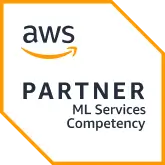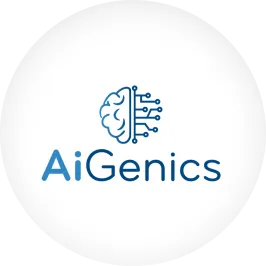Healthcare Analytics Use Cases
Use Data to Drive Faster Decisions & Healthier Outcomes
Use healthcare analytics to prevent readmissions, reduce operational costs, and deliver more personalized, efficient care that empowers providers to make smarter, faster decisions that lead to better patient outcomes and system performance.






Why Healthcare Analytics Is No Longer Optional?
We are a part of a rapidly evolving healthcare environment, and guesswork is no longer viable. From patient outcomes to operational strategy, healthcare providers must make timely, data-backed decisions to stay compliant, efficient, and patient-centric.
Healthcare analytics bridges the gap between complex datasets and actionable insights, transforming raw patient, clinical, and operational data into evidence-driven care delivery models. The use of data analytics in healthcare is no longer a “nice-to-have.” It’s the key to driving preventive care, reducing costs, and improving population health, all while navigating increasing regulatory and financial pressures.

How Healthcare Analytics Improves Outcomes & Reduces Costs?
Prevent Sooner. Engage Smarter. Save More.
Preventive & Operational Efficiency
Healthcare analytics empowers providers to take action before issues escalate. By analyzing patient data in real time, care teams can identify early warning signs and intervene proactively. This leads to up to 57% fewer inpatient admissions and 31% fewer emergency department visits, as reported by Fifth Third Bank. The result? Better patient health and more efficient use of resources.
Patient Engagement & Readmission Prevention
With the ability to detect 83% of high-risk readmissions and a false-positive rate as low as 9%, analytics gives clinicians the insights they need to deliver timely follow-ups and personalized care plans. Engaged patients are more likely to adhere to their treatment, resulting in fewer avoidable readmissions and improved long-term outcomes.
Clinical Outcomes & Cost Savings
Predictive discharge models deployed across seven U.S. hospitals shortened hospital stays by an average of 0.67 days, generating a projected annual savings of $55–72 million. These improvements aren’t just operational, but they translate directly into higher-quality care, increased patient satisfaction, and substantial financial returns.
How Healthcare Analytics Is Reshaping the Industry - Top 10 Use Cases
See How Data Is Powering Smarter, Safer, and More Personalized Care
Disease Progression Prediction
Predictive analytics models assess clinical history, genetic markers, and lifestyle factors to forecast the trajectory of chronic conditions such as diabetes, heart disease, or cancer. This allows clinicians to initiate early interventions and prevent disease escalation.
Hospital Readmission Risk Scoring
Using EHRs, discharge summaries, and socioeconomic data, hospitals can identify patients most likely to be readmitted. This enables tailored discharge planning, timely follow-ups, and improved continuity of care, dramatically reducing readmission rates.
Personalized Treatment Pathways
By analyzing patient data, including lab results, imaging, genomics, and response to previous treatments, healthcare providers can create individualized care plans. These precision-based approaches enhance outcomes and minimize unnecessary procedures.
Medication Adherence Monitoring
Real-time analytics track prescription fill rates, wearable device data, and patient-reported outcomes to detect non-adherence trends. Clinicians can intervene earlier by providing reminders or adjustments, thereby improving medication effectiveness and reducing complications.
Early Detection of Sepsis & Deterioration
Time-sensitive conditions, such as sepsis, require rapid detection. AI-driven models monitor vitals, lab values, and nurse notes to flag early warning signs, triggering alerts before the condition escalates, potentially saving lives.
Predictive Staffing & Resource Allocation
By analyzing historical patient volumes, admission trends, and peak hours, hospitals can more efficiently forecast staffing needs and allocate resources, thereby reducing burnout and improving patient-to-provider ratios.
Supply Chain & Inventory Forecasting
Track consumption patterns of medical supplies, pharmaceuticals, and equipment to forecast future demand. Analytics helps prevent both shortages and waste while ensuring critical supplies are always available.
Claims Denial Prediction
Using machine learning, hospitals can predict which insurance claims are likely to be denied and identify root causes, enabling corrections before submission and accelerating reimbursements.
Length of Stay Prediction
Analytics models estimate a patient’s expected hospital stay based on diagnosis, treatment plans, and demographics. This enables better bed management, discharge planning, and resource optimization.
Preventive Care Targeting
Identify high-risk populations based on social determinants of health, medical history, and lifestyle data. Health systems can then proactively engage these patients with preventive screenings and care programs to reduce long-term health risks.
Key Benefits of Healthcare Data Analytics
Better Insights. Better Care. Better Business.
Improved Patient Care
Analytics empowers providers with a comprehensive view of each patient’s health journey from diagnostics to follow-up. This enables more personalized, timely, and effective treatments that improve clinical outcomes and patient satisfaction.
Cost Reduction
By identifying unnecessary tests, minimizing readmissions, and optimizing treatment plans, healthcare analytics enables providers to reduce waste and control rising operational costs without compromising care quality.
Operational Efficiency
Track key performance indicators, predict staffing needs, and streamline workflows using real-time data. From the emergency room to the billing department, analytics eliminates bottlenecks and accelerates service delivery.
Population Health Support
Aggregate data across demographics, conditions, and geographies to identify populations at risk and deploy targeted outreach. Analytics helps health systems address disparities, promote wellness, and manage community health proactively.
Informed Decision-Making
Gone are the days of delayed or reactive decisions. With predictive models and real-time dashboards, clinicians and executives alike can act faster and with greater confidence across every level of care delivery.
How Folio3 is Transforming Healthcare Through Data-Driven Decisions?
Case Study - Phamily’s Healthcare Analytics Success Story

The Challenge
Fragmented Data & Limited Visibility
As Phamily scaled its digital healthcare solutions, it faced growing challenges in managing sensitive health data across multiple systems:
Disparate Data Sources
Key data was scattered across platforms, making real-time analysis difficult and delaying insights.
Complex EHR Integration
Connecting with platforms like Athenahealth and Epic using FHIR, HL7, and CDC protocols required secure, real-time interoperability.
Lack of Actionable Insights
Without a centralized data warehouse, Phamily’s teams were unable to extract insights from operational data, resulting in limited visibility into key business metrics, such as user conversion and enrollment funnels.
The Solution
Scalable & Secure Analytics Infrastructure
Folio3 Data Services designed a comprehensive, analytics-ready data infrastructure tailored to healthcare needs:
Data Consolidation via BigQuery
Streamlined backend ingestion pipelines to unify healthcare data into a centralized BigQuery warehouse.
EHR Integration with InterSystems IRIS
Built a compliant, secure foundation to support real-time synchronization of patient records across providers.
Dedicated Reporting Architecture
Created data marts on top of operational data and implemented Metabase as a reporting layer, enabling real-time insights and dashboard access for business teams.


The Results
Transforming Data Into Actionable Intelligence
Phamily’s healthcare analytics transformation delivered measurable improvements across operations, compliance, and care delivery:
Unified & Scalable Data Pipeline
Consolidated backend infrastructure eliminated silos and improved data accuracy.
Real-Time Insights
Business teams gained complete visibility into user funnels, enrollment metrics, and operational KPIs.
Improved EHR Interoperability
Ongoing InterSystems integration positioned Phamily for seamless, secure care coordination.
Patient-Centric Innovation
With structured analytics in place, Phamily now delivers more personalized and data-driven healthcare experiences.
What Makes Folio3 the Right Choice for Healthcare Analytics?
Accelerate Smarter Healthcare with a Partner Who Understands the Healthcare Industry
Deep Healthcare Domain Expertise
With years of experience across healthcare tech, Folio3 understands the complexity of clinical workflows, regulatory requirements, and patient-centric care models. We bring tailored analytics strategies that align with the real-world challenges of healthcare delivery.
End-to-End Healthcare Analytics Solutions
From backend data engineering and EHR integration to intuitive reporting dashboards and AI-powered insights, we provide full-spectrum analytics solutions that cover every stage of the healthcare data lifecycle.
Proven Outcomes & Case Studies
Our work speaks for itself. From transforming disjointed data into actionable intelligence to enabling real-time clinical insights, Folio3 delivers a measurable impact, backed by success stories such as Phamily and others.
Modern, Compliant Tech Stack
We build on top-tier platforms like Google BigQuery, InterSystems IRIS, and Metabase, ensuring your data infrastructure is scalable, secure, and compliant with HIPAA, HL7, FHIR, and CDC standards.
Accelerated Time-to-Insight
Our agile data teams move quickly so that you can unlock value from your healthcare data in a short time. We specialize in reducing time-to-insight, helping you make faster, smarter decisions at every level.
Tech Stack That Powers Impact
Modern problems need modern tools. Our healthcare analytics solutions are built on a robust, secure, and scalable technology stack designed to deliver real-time insights, seamless integrations, and measurable results without compromising compliance.
Technologies Used
GCP Data fusion

Google BigQuery
Metabase for reporting
InterSystems
Optum
Identity & Access Management
Athena
Data Integration
Analytics & Monitoring
Data Storage & Warehousing
GitHub Actions, OIDC Integration
Make Every Healthcare Decision Data-Driven
Empower your teams with real-time insights, predictive analytics, and secure data infrastructure built for modern healthcare. Let’s unlock the full potential of your healthcare data, together.
Over 10,000 plus Happy retained clients
Real Results, Real Impact





Our Team
Built by Engineers. Led by Thinkers. Driven by Results.
At Folio3 Data, our team goes beyond understanding data—they make it meaningful with sharp thinking, hands-on execution, and a commitment to solving complex problems.
We act as an extension of your team—collaborating, building, and staying until it works.
Frequently Asked Questions
What are the most common use cases of healthcare analytics?
Healthcare analytics is widely used for predictive patient care, reducing readmissions, optimizing resource allocation, improving diagnostics, and enhancing operational workflows.
How can healthcare analytics reduce hospital readmissions?
By identifying high-risk patients through historical and real-time data, healthcare analytics enables proactive care planning and targeted interventions, significantly reducing the chances of preventable readmissions.
Can healthcare analytics help improve clinical decision-making?
Yes. Analytics delivers evidence-based insights at the point of care, supporting physicians with real-time data on patient history, treatment efficacy, and potential risks to aid faster and more accurate decisions.
What role does analytics play in population health management?
Analytics enables healthcare providers to identify at-risk populations, track disease trends, and implement preventive care strategies, improving overall community health outcomes.
How does healthcare analytics support operational efficiency?
By streamlining processes, optimizing staffing, managing patient flow, and minimizing resource waste, analytics enhances productivity and reduces operational bottlenecks across healthcare facilities.
Is healthcare analytics useful for financial performance improvement?
Absolutely. It identifies cost-saving opportunities, minimizes billing errors, and supports value-based care models—directly impacting the bottom line.
Can analytics be used to predict outbreaks or public health trends?
Yes. Predictive analytics models can track epidemiological data in real-time, helping to detect early warning signs of disease outbreaks and enabling a faster public health response.
What kind of data is needed to build effective healthcare analytics models?
Effective models rely on a combination of EHR data, clinical notes, patient demographics, insurance claims, lab results, and operational data, all of which are secured and structured to ensure privacy and accuracy.
How soon can a healthcare organization expect ROI from analytics initiatives?
ROI timelines vary based on the scope of implementation. However, many healthcare organizations begin seeing measurable improvements in efficiency, patient outcomes, and cost savings within 6 to 12 months.
Let’s Talk Data
Strategy!
Partner with our healthcare analytics experts to streamline clinical and operational data workflows—transforming predictive insights into faster, evidence-based decisions that improve patient outcomes.
Request A Call
Get in touch with our team to solve your queries.



